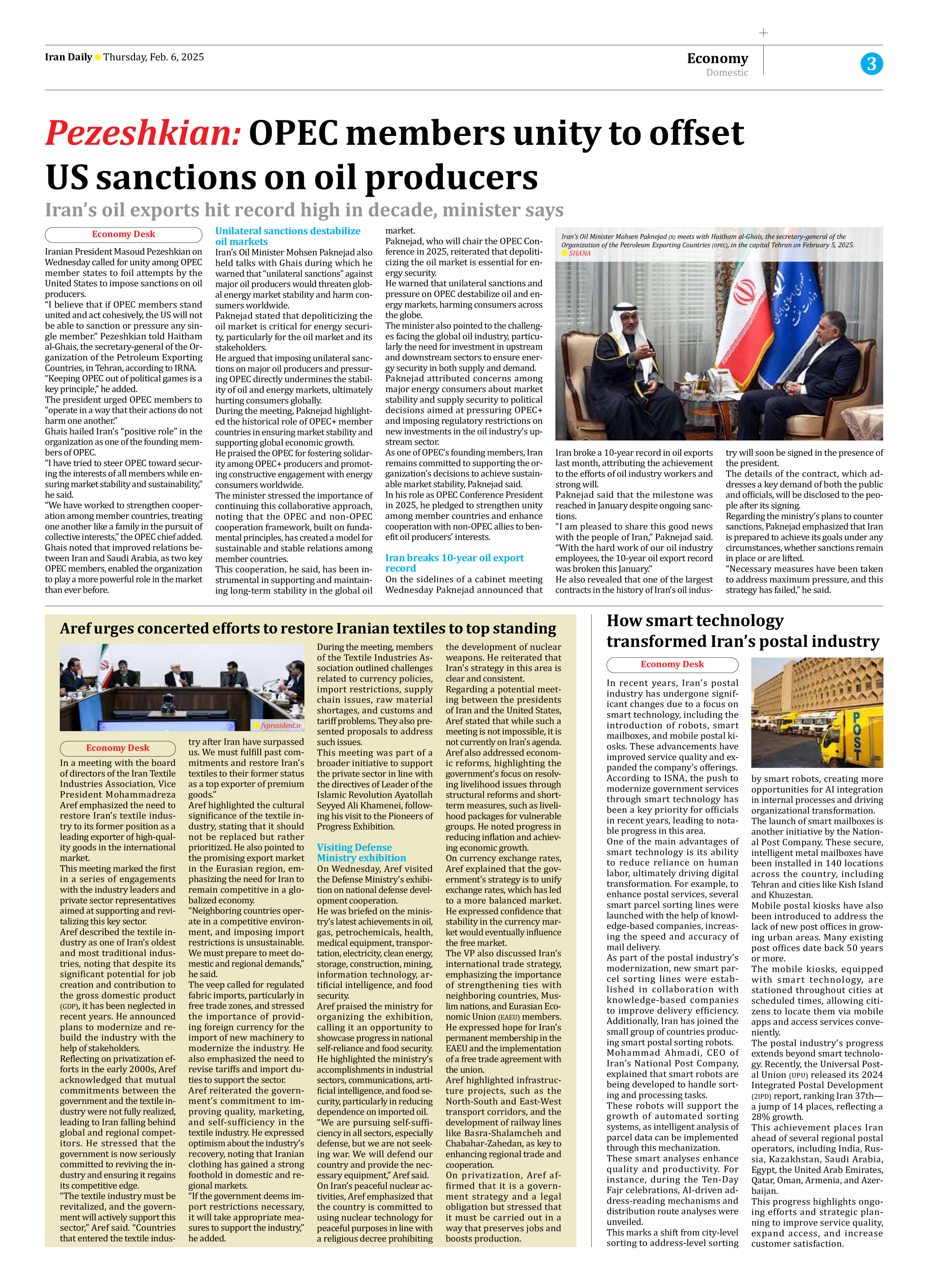
How smart technology transformed Iran’s postal industry
In recent years, Iran’s postal industry has undergone significant changes due to a focus on smart technology, including the introduction of robots, smart mailboxes, and mobile postal kiosks. These advancements have improved service quality and expanded the company’s offerings.
According to ISNA, the push to modernize government services through smart technology has been a key priority for officials in recent years, leading to notable progress in this area.
One of the main advantages of smart technology is its ability to reduce reliance on human labor, ultimately driving digital transformation. For example, to enhance postal services, several smart parcel sorting lines were launched with the help of knowledge-based companies, increasing the speed and accuracy of mail delivery.
As part of the postal industry’s modernization, new smart parcel sorting lines were established in collaboration with knowledge-based companies to improve delivery efficiency. Additionally, Iran has joined the small group of countries producing smart postal sorting robots.
Mohammad Ahmadi, CEO of Iran’s National Post Company, explained that smart robots are being developed to handle sorting and processing tasks.
These robots will support the growth of automated sorting systems, as intelligent analysis of parcel data can be implemented through this mechanization.
These smart analyses enhance quality and productivity. For instance, during the Ten-Day Fajr celebrations, AI-driven address-reading mechanisms and distribution route analyses were unveiled.
This marks a shift from city-level sorting to address-level sorting by smart robots, creating more opportunities for AI integration in internal processes and driving organizational transformation.
The launch of smart mailboxes is another initiative by the National Post Company. These secure, intelligent metal mailboxes have been installed in 140 locations across the country, including Tehran and cities like Kish Island and Khuzestan.
Mobile postal kiosks have also been introduced to address the lack of new post offices in growing urban areas. Many existing post offices date back 50 years or more.
The mobile kiosks, equipped with smart technology, are stationed throughout cities at scheduled times, allowing citizens to locate them via mobile apps and access services conveniently.
The postal industry’s progress extends beyond smart technology. Recently, the Universal Postal Union (UPU) released its 2024 Integrated Postal Development (2IPD) report, ranking Iran 37th—a jump of 14 places, reflecting a 28% growth.
This achievement places Iran ahead of several regional postal operators, including India, Russia, Kazakhstan, Saudi Arabia, Egypt, the United Arab Emirates, Qatar, Oman, Armenia, and Azerbaijan.
This progress highlights ongoing efforts and strategic planning to improve service quality, expand access, and increase customer satisfaction.







